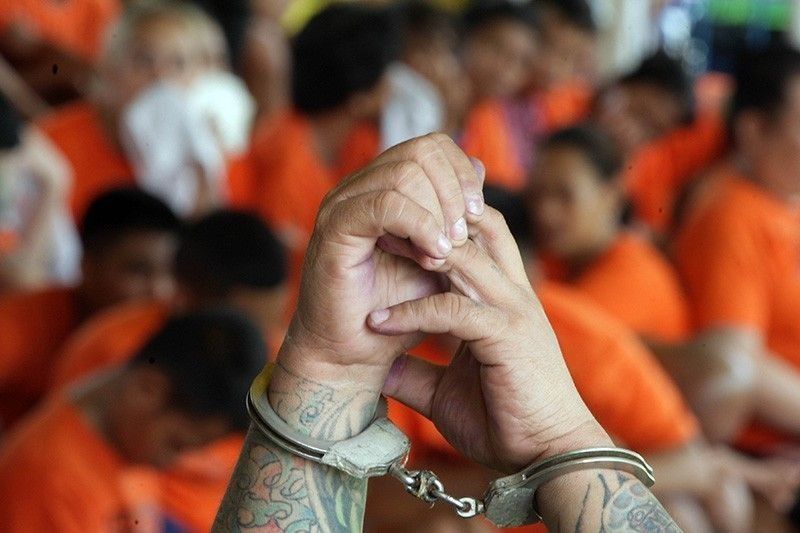Lawyers: Death penalty more likely to affect poor, doesn't deter crime

MANILA, Philippines — Data shows that more poor convicts are likely to end up being scheduled for execution and that the death penalty is not a deterrent to crime, lawyers groups told members of the House looking into the reimposition of capital punishment on Wednesday.
Integrated Bar of the Philippines, Free Legal Assistance Group and the National Union of Peoples' Lawyers said that the government, instead, must focus on strengthening the country’s justice system to deter crimes.
IBP president Domingo Egon Cayosa, FLAG chairman Chel Diokno and NUPL chairman Neri Colmenares were among the resource speakers at the House justice committee's deliberations on bills pushing for the reimposition of the death penalty—among the measures President Rodrigo Duterte mentioned in his penultimate State of the Nation Address.
Data and statistics on death penalty
“Statistically, and sociological studies would show... that there is no direct correlation between criminality, including drug cases, and the death penalty,” Cayosa said.
And with the “imperfect justice system” the country has, the poor would stand to suffer the most. Although the state is duty-bound to provide legal counsel to accused who cannot afford their own lawyers, Public Attorney's Office lawyers handle multiple cases and it would be impossible for them to give the same attention as a private lawyer hired by a wealthy defendant.
Cayosa said that data from the Supreme Court itself showed that “a vast majority of those convicted belong to the poor”
Of convictions sentenced to the death penalty, 71.77% were later reversed by the high court, he also said.
The IBP president noted that death penalty cases are automatically reviewed by the SC—and this takes five to 15 years to resolve, he added.
Diokno said that data from the PNP showed that crime volume went down when the death penalty was abolished. In contrast, he said, “crime volume, for rape in particular, went up” when the Philippines executed convicts from 1998 to 2002.
A FLAG survey in 2004 also showed that 73% of death row inmates were poor and were illiterate or did not receive much education. Eighty-one percent of convicts had low-income jobs before they were arrested, prosecuted and sentenced.
FLAG estimates that those facing cases punishable by death would also need at least P300,000 to mount a legal defense.
“Definitely that is way beyond the means of many of those who were charged and later convicted,” Diokno also said.
NUPL chairman Neri Colmenares added that the crime rate fell from 2010 to 2012 and then increased in 2013 but there was no death penalty in the country during these periods.
The Philippine National Police also said that in 2017, crime rate went down by 9.13% despite the state not executing its convicts at the time.
Colmenares, also a former lawmaker, stressed that if statistics and studies show that the death penalty is not a deterrent to crime, “why continue to push through with it?”
“We are going to send people to their deaths, the least that we can do is prove that their deaths [serves some purpose],” Colmenares added.
Strengthen the justice system
Diokno stressed that it is “the certainty of being caught and punished that deters crime and not the severity of the punishment.”
“The only real and lasting solution to criminality is to strengthen the justice system. No amount of death penalty laws will work without that,” he also said.
Cayosa also noted that the justice system in the Philippines is slow at times, and even sometimes corrupt.
“No amount of penalty will deter and scare our people or much more hardened criminals or syndicates if they know they can go around our policemen, fiscals, judges and even the warden,” he also said.
Related video:
- Latest
- Trending





























